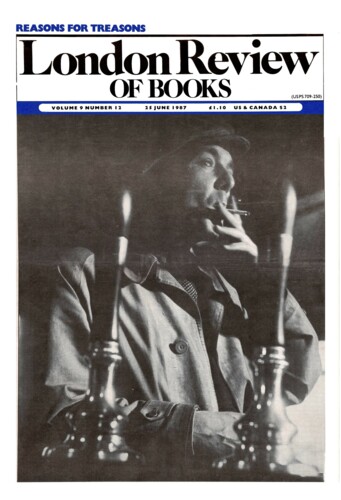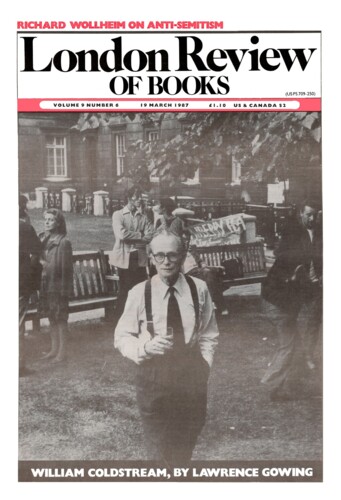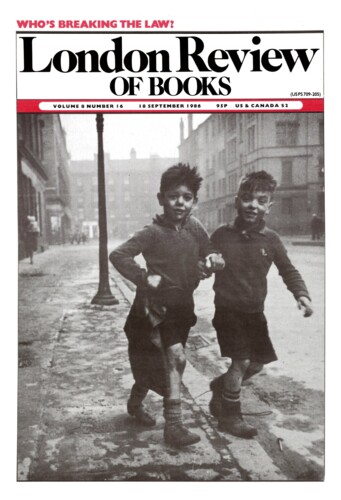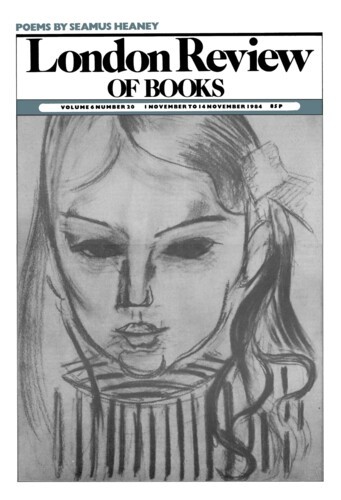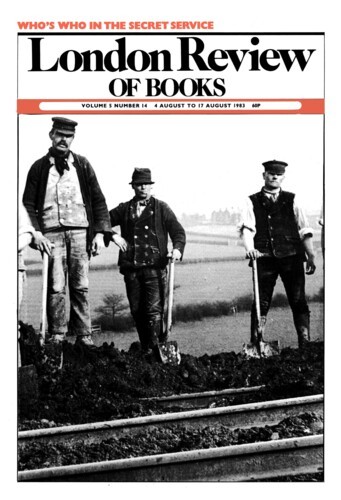V.G. Kiernan on treason
V.G. Kiernan, 25 June 1987
Some drooping memories of Cambridge before the war have been revived of late by various writings. One is an autobiography, Reading from Left to Right, by a Canadian, Professor H.S. Ferns. Few socialists of the Marxist persuasion – practically the only sort of people I got to know at college – seem to write memoirs; most of them probably feel that there are always more useful things to be done. Henry Ferns deviated from socialism long ago, but became a distinguished historian. His book, both entertaining and informative, looks back over a lifetime of abrupt, unforeseeable changes of outlook. Then there have been three books concerned with another Canadian of our time, Herbert Norman, a Cambridge Communist who turned into a respected member of his country’s diplomatic service, was hunted by the Cold War pack, and ended, a suicide, at Cairo. He has become something of a symbol of Canadian independence from America, but scholars from both countries took part in a conference held a few years ago to assess his life and work: I was invited to speak about his time at Cambridge. The conference papers, edited by Roger Bowen, have been published, and Dr Bowen has also written an appreciative biography. Japanese studies being his subject, he is well qualified to weigh up the writings on modern Japan of Herbert Norman, a missionary’s son who grew up there. Very different is a viciously McCarthyite attack on him by an American, J. Barros (who has had the bad taste to thank me for some small assistance I gave him before I discovered what he was up to). This has stirred up some controversy, and Barros was very effectively dealt with in a long review in the Canadian Forum (November 1986) by Reg Whitaker of York University. Henry Ferns, too, had a word to say about him in the same issue of the paper.
